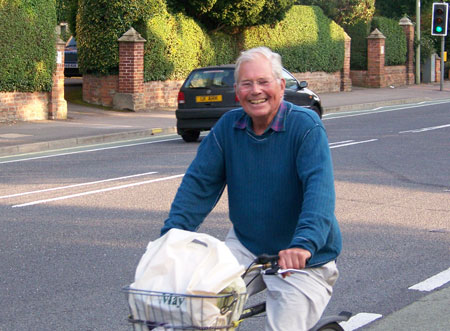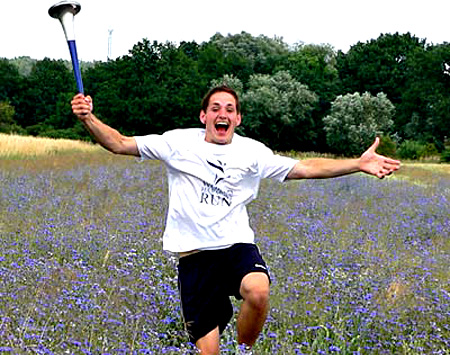
I occasionally give meditation classes in my home city of Dublin. The great thing about giving classes is that they attract amazing people from all different corners of the globe and walks of life. Many of them are there looking for techniques to relieve the increasing amount of stress and anxiety that they face in their lives. Others, though, come looking for something that goes beyond just stress relief; they feel that meditation can somehow give them a deeper sense of themselves, and expand their awareness of who they are. And they are right. It can.
Many of the exercises we teach in our classes stem from one very simple secret I learned from my meditation teacher, Sri Chinmoy – to meditate on the heart instead of the mind. Seeing as our overactive mind is the source of many of our worries, meditating in the mind can often lead to tension and stress. On the other hand, the heart is that space in the middle of the chest we point to when we refer to ourselves, so naturally it is a very good place to begin any journey of self-discovery.
This meditation exercise works on two levels – it helps to purify the mind of all the superfluous chatter that gets in the way of our self discovery, and (more importantly) it makes us identify with a much deeper part of our nature that goes beyond the body or the mind. When we are in the heart, we see that it is always aspiring and reaching towards a greater sense of happiness. And according to all the great meditation teachers, that sense of perfection and true happiness lies within us, in the highest part of our being – for example, Zen Buddhism talks about how we are already enlightened, we just need to uncover it, and of course there is the famous utterance of the Christ “the Kingdom of Heaven is within you”. We call this highest part of our being the soul, although many people have their own language to describe it.
Method:
1. It doesn’t matter if you use a cushion or a chair to sit; the important thing is that you keep your back straight. For this exercise, you can keep your eyes closed and your hands turned upwards on your lap.
2. For the first couple of minutes, just slowly scan through your body from to bottom, making sure that everything is relaxed. Make any little adjustment you need to make to ensure your body is relaxed and free of tension. Pay particular attention to your neck and shoulders as this is where a lot of tension builds up.
3. When we are fully relaxed, we will begin the meditation proper. When you breathe in, slowly repeat to yourself “I have no mind, I have no mind. What I have is the heart.” As you say this, try to feel that at this moment the mind does not exist, that the only part of you that is truly real is the heart. As you feel more and more that the heart is the only real part of you there, your attention will be focused there more and more. If the mind interrupts with its thoughts, don’t worry, just bring your attention back to the exercise.
4. After 3 or 4 minutes, we can take a step further, from the heart into the soul. This time repeat to yourself “I don’t have a heart. What I have is the soul.” Feel that deep inside the heart lies the soul, the highest part of your being, which is all beauty and all light. Again, feel that the soul is the only real part of you – this will naturally bring your attention more and more to it.
5. After another few minutes, you can take a further step, saying this time “I am the soul”. This beauty, joy and peace is not just something lying dormant inside you, it is what you truly are. As you say this, you are far beyond the limitations of your mind and body, and you can feel as tremendous feeling of purity and inner freedom enter your being. Try and stay in this beautiful space for as long as you can.
A lot of people who come to meditation classes have very beautiful experiences from doing exercises like this one – the experiences tend to vary from person to person, as the exercise serves to bring our the unique qualities of your soul. If anyone is inspired to try and let us know if they had any nice experiences, we’d be more than happy to hear about it!
Photo: Sri Chinmoy Centre Galleries








